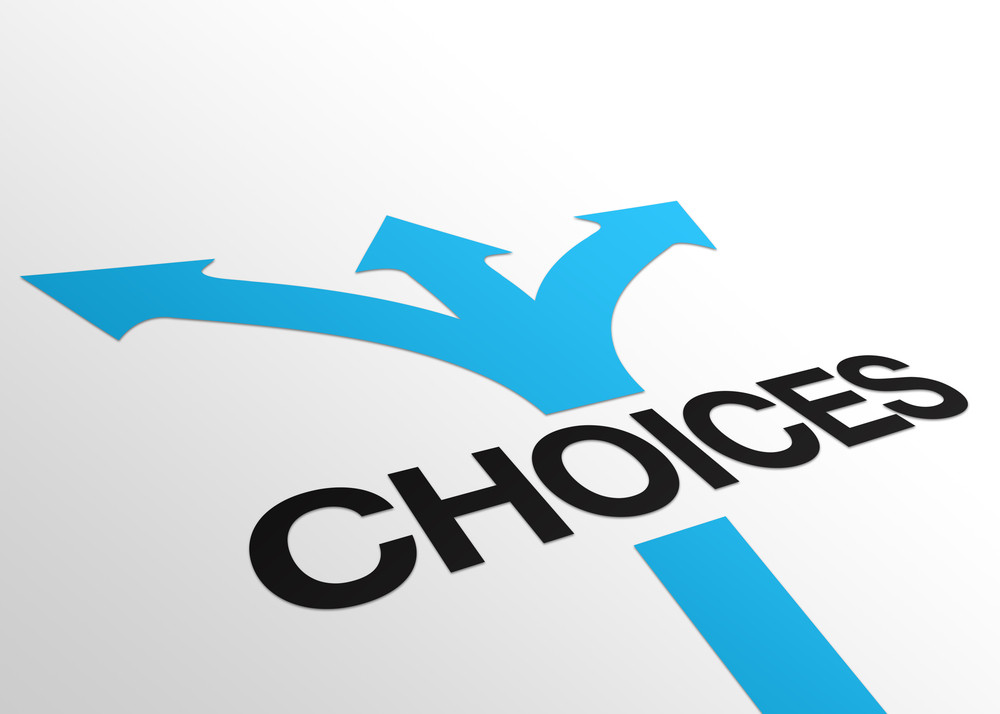
“Life is a matter of choices and every choice makes you”- John C. Maxwell. Everyone of us face difficult choices daily. Should you eat that delicious desert you have been eyeing or should you take that tempting job offer. As leaders, we are constantly faced with challenging situations- Should we pursue a particularly attractive market opportunity or shut down a product line that’s performing poorly? As #1 leadership guru John C. Maxwell rightly said- our choices make us who we are and who we can become. Shouldn’t everyone simply make the RIGHT choices then? Why do we all struggle with making good choices?
A key factor that influences our choices is perhaps based on how our brain is wired. Noted Nobel prize winner Prof. Daniel Kahneman author of acclaimed book – “Thinking Fast and Slow” describes the concept of “System 1” and “System 2” thinking and it’s influence on our decisions. Prof. Kahneman is also considered the “godfather” of the incredible discipline of behavioral economics. “System 1” thinking is the instinctive and emotional thinking that is fast and based on “associative memory”. Simple day to day decisions like what type of “burger” or “drink” you order are based on “System 1” thinking. “System 2” thinking is slower, conscious and more rational thinking and is often what you would expect for more important decisions like buying a car or which company to work for. “System1” thinking is based on “limited evidence/information and biases/first impressions” and can often influence “System 2” to return a result that is actually irrational and is “justified” by “system 1”. Another concept is that everyone has two forms: “experiencing self” [System 1] and “remembering self”[System 2]. These two forms of “mental operating systems” are responsible for why sometimes we cannot trust that the decisions we make are in our best interests. The experiencing self is the “you” in the moment that is living through the event, whereas the remembering self is the “you” that lives in the past and bases future decisions on what happened in the past.
Shouldn’t we always make rational choices and exert self-control? System 2 thinking is inherently lazy and it requires more “work” to run, so in reality we are constantly leveraging our “gut thinking” or “System 1” thinking even in scenarios where we should be leveraging “System 2”. A series of experiments by psychologist Roy Baumeister has shown that an effort of self-control is tiring, and therefore when faced with a situation where you need to invoke “system 2” right after it has just been taxed, can actually lead to a surprising outcome, where we may end up making a emotional/intuitive choice that is governed by “System 1” thinking instead. This phenomenon is known as “ego depletion”. The more conscious our decision making, the more likely we will make decisions that will catapult our lives and businesses in the right direction.
So how do we as leaders/executives make RIGHT choices when we are faced with a fork in the road? I offer a framework called (RIGHT) below to help us tackle complex leadership decisions we face as business leaders:
R- React Slowly- Avoid impulsive reactions especially as it comes to decision making involving people on your team. Take a deep breath and think through any biases/prejudices that you may be making unconsciously before reacting and speaking to your team or blurt out something in a meeting you will later regret. Take a “Time-Out” like high-pressure sports teams do. Delay the decision for a day or take a break and listen to music or watch something unrelated like a “comedy” video clip to help your “System 2” brain recoup.
I- Information – Always ensure due diligence, in terms of collecting “evidence” or “relevant” information before making people-centric decisions. Information could be collected directly from the concerned individuals or from others directly aware of the problem.
G-Get Help- Bounce your thoughts/decisions off other executives or a coach to get clarity on your thoughts and ensure you are thinking through the decision and not jumping to conclusions or being influenced by past experiences/biases.
H-Handle Pressure – Be honest to yourself and make decisions that you truly believe are the right decisions. Do not succumb to pressure from external influencers who may also be operating under “system 1” influence.
T- Take Feedback- Once you have made a decision, and communicated this to the concerned individuals, take feedback from them on how they perceive your decision. It is important to close the loop here, to ensure that you are feeding into “System 2” -your “remembering self”.
Hope you find this framework useful to make good choices as a leader in your organization.
Management is doing things right; leadership is doing the right things.” – Peter F. Drucker